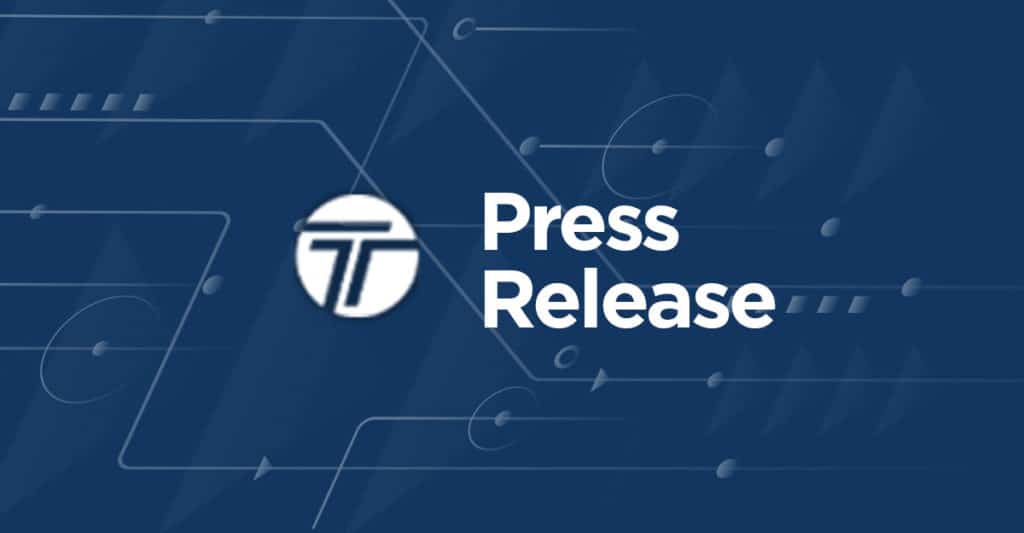
While all facets of the modern business are important, arguably the most important to any retail, manufacturing, or goods based service is their supply chain. The supply chain serves as the backbone of these companies and has a significant impact on the company’s business strategy which directly affects its operation and operational costs. Additionally, the performance of the supply chain has a direct impact on a company’s ability to provide services to their customers and create additional value via services offered or simply through reliability. With the multitude of changes that have been occurring within the logistics, trade, and freight industries now, more than ever, is an opportune time to conduct or review the process of internal audit of your supply chain.
An internal supply chain audit is one of the most powerful methods of evaluating and possibly improving your supply chain, reduce operations costs, and increase competitive advantages.
An internal supply chain audit is one of the most powerful methods of evaluating and possibly improving your supply chain, reduce operations costs, and increase competitive advantages. The goal of the internal audit is to help you find weaknesses within your supply chain and correct pain points, bottlenecks to increase supply chain flexibility, agility, and overall efficiency. To make the most out of your audit and its results, it’s important to understand that the supply chain isn’t a stand-alone, isolated feature of your business. In all actuality, the supply chain is suffused in every aspect of your business. As such the supply chain needs to be viewed between all participating companies and suppliers throughout the supply chain, with solutions applied from a holistic approach.
Why an Internal Audit is Necessary for Your Supply Chain
For most companies, audits are typically part of the normal routine, either for financial records or for physical inventory. The entire purpose behind an audit is to make sure things are where they should be and that everyone is playing by the same rules. “Internal auditing is defined as an independent, objective assurance and consulting activity designed to add value and improve an organization’s operations. It helps an organization to accomplish its objectives by bringing a systematic, disciplined approach to evaluate and improve the effectiveness of risk management, control, and governance processes,” as defined by The Institute of Internal Auditors (IIA).
This is especially important when trying to maintain retail compliance, for example, with increasing customer demands like On Time; In Full (OTIF) or Must Arrive By Date (MABD).
Simply put, an internal audit is a multi-step process that is a means of determining whether your current systems and operations are in compliance with your company’s predetermined operating procedures and regulations. This is especially important when trying to maintain retail compliance, for example, with increasing customer demands like On Time; In Full (OTIF) or Must Arrive By Date (MABD). Conducting an internal audit does more than just evaluates the supply chain, it also takes a necessary look at the interaction between other aspects of the organization such as the accounting and financial systems, practices, and procedures. For example, are your planners and purchasers communicating properly, not only with each other but with the production floor and shipping department? Are parts coming in with enough lead time that items can be manufactured and shipped according to customer requirements? An internal audit is important because it allows the company executives and logistics decision makers to examine the effectiveness of their business operations and controls and applications of new policies. Over time, establishing those best practices means a more competitive and more profitable company in the future.
Things to Consider Before you Start the Audit
Performing an audit is one thing, but knowing what areas you need to be focusing on is something else entirely. While every audit should be more or less tailored to the specific needs of an individual organization, here is the basic framework for initiating an audit that needs to be included:
- Audit Planning: Internal auditors should have a plan in place well before the actual auditing begins.
- Examining and Evaluating Information: Internal auditors should have a standardized criterion to compare findings against.
- Communicating Results: Audit should have a clear and concise method of reporting their findings.
- Follow Up: Internal auditors should follow up in a timely manner to ensure that appropriate actions have been taken to correct audit findings.
This framework also serves as a support system for corporate managers and allows managers of larger production systems to delegate the oversight of the audit to the internal audit department. This is important for a few reasons:
- Operating Complexity: Automated data processing has increased the levels of complexity when analyzing data, a task better suited for those who know what to look for.
- Decentralization: Given that supply chains are prone to be decentralized in terms of a physical location due to globalization.
- Lack of Expertise: As the adage goes, stick to what you know. Leave those auditors in charge of the audit for the best quality audit.
With the right framework in place for the audit to commence, let’s take a look at the tasks involved for the actual audit.
Supply Chain Structure and Internal Audit Tasks
Like we mentioned above, every company is different and, as a result, the needs for every individual supply chain will vary. So while there is no hard and fast or “Use audit ‘A’ for Supply chain system ‘1’ ” convenient method of doing things, there are some common focal points that are applicable for just about every organization and style of the supply chain. The supply chain management processes identified by The Global Supply Chain Forum are:
- Customer Relationship Management
- Supplier Relationship Management
- Customer Service Management
- Demand Management
- Order Fulfillment
- Manufacturing Flow Management
- Product Development and Commercialization
- Returns Management
All of these processes are hallmarks of a healthy supply chain and also indicative of the successful supply chain management. Here again, we can see all of the links that connect the supply chain to every other facet of the business. Another benefit to performing an internal audit is that offers to perfect opportunity to increase the synergy between these various departments. For CFO’s and supply chain leaders, this means that supply chain management deals with total business excellence and represents a new way of managing the business and relationships with vendors, suppliers, and partners. An internal audit can help a company in finding answers to crucial questions about managing success factors of supply chain excellence, of which these can be divided into five main sections:
- Strategy – To determine if the enterprise has a clear strategy tuned to business expectations and focused on profitably servicing customer requirements
- Organization – To determine if an effective organization structure exists enabling the enterprise to work with its partners to achieve its supply chain goals
- Process – To determine if the enterprise has excellent processes for implementing its strategy, embracing all plan-source-make-deliver operations
- Information – To determine if the enterprise has reliable information and enabling technology to support effective supply chain planning, execution, and decision-making
- Performance – To determine if the enterprise is managing supply chain performance in ways that will increase the bottom line, cash flows and shareholder returns
Supply Chain Risk Management
As much as we wish we could, the ability to see and accurately predict the future still eludes us to this day. In the end, it all comes down we can optimistically refer to as an “educated guess”. With that being said, even the most educated guesses can’t predict the weather or a broken down truck. This means that within every supply chain, there will always be an element of risk. That risk represents any number of things that can go wrong within your supply chain and halt or delay your shipments. For this very reason, risk management is incredibly important when evaluating your supply chain.
An internal audit can provide business leaders with the necessary framework to develop an appropriate supply chain risk management program.
Risk management is a huge proponent of supply chain health, especially given the instabilities in the global marketplace created by political uncertainty, trade tariffs, etc. An internal audit can provide business leaders with the necessary framework to develop an appropriate supply chain risk management program. This is how your supply chain audit can also help with risk reduction and increased security:
- Reviewing and understanding supply chains, including their strengths and weaknesses, in developing markets, to validate monitoring programs
- Working with the company’s supply chain specialists to help develop a monitoring process that can be repeated
- Helping to identify which suppliers are critical
- Assessing which suppliers may be vulnerable to threats and helping draw up a residual mitigation profile
- Identifying strong risk control procedures
- Helping to develop key analytic tools and techniques
- Aiding with compliance monitoring
Ideally, the risk mitigation will also allow companies to increase supply chain efficiency to the point where on hand stock can be reduced. While having excessive stock might create a buffer in time where shipments are running late or capacity is tight, that excess can also eat into company profit margins. Additionally, having a well-running supply chain vastly lowers the chance for disruptions, operating costs, and other unexpected costs such as chargebacks, detention fees.
Despite the cause, however, the results are often the same, a drastic slow down of operations and a huge impact on customer satisfaction and profitability.
Supply chain management is a very complex structure of activities with cross-functional processes, and it presents one of the most important functions in the company since it is directly linked to all functions of the company. Supply chain problems can result from any number of things including natural disasters, labor disputes, supplier bankruptcy, an act of war or terrorism, systems breakdowns, procurement failures, and other causes. Despite the cause, however, the results are often the same, a drastic slow down of operations and a huge impact on customer satisfaction and profitability. The supply chain internal audit aims to support managers in process optimization and above all in cost reduction which result from an uncertain environment by evaluating and directing management towards approaches which will prevent or reduce negative effects. After analyzing definitions and some of the standards of internal audit, it can be concluded that this process can improve effectiveness and efficiency, and by that, the performances of many functions within the organization. High-impact supply chains are more competitive and are capable of winning market share and customer loyalty, creating shareholder value, extending the strategic capability and reach of the business. Independent research shows that excellent supply chain management can yield:
- 25-50% reduction in total supply chain costs
- 25-60% reduction in inventory holding
- 25-80% increase in forecast accuracy
- 30-50% improvement in order-fulfillment cycle time
- 20% increase in after-tax free cash flows
To increase supply chain strength, agility, and overall integrity, companies should develop a framework for a structured approach to ongoing risk identification and management. This will enable businesses to proactively address organizational supply chain risks on a periodic basis – a practice that affords stronger company and brand protection against supply chain risk gaps.
The more we know the more we can simplify.
The more we know the more we can simplify. When we know what your current transportation situation involves and what your pain points are, we can really help you simplify. The journey with our customers begins with the Needs Assessment process and the goal to determine transportation management solutions that increase productivity and decrease overall costs. To speak to one of our freight experts, call us at 800.MY.SHIPPING or fill out the form below to receive a FREE Supply Chain Analysis.



